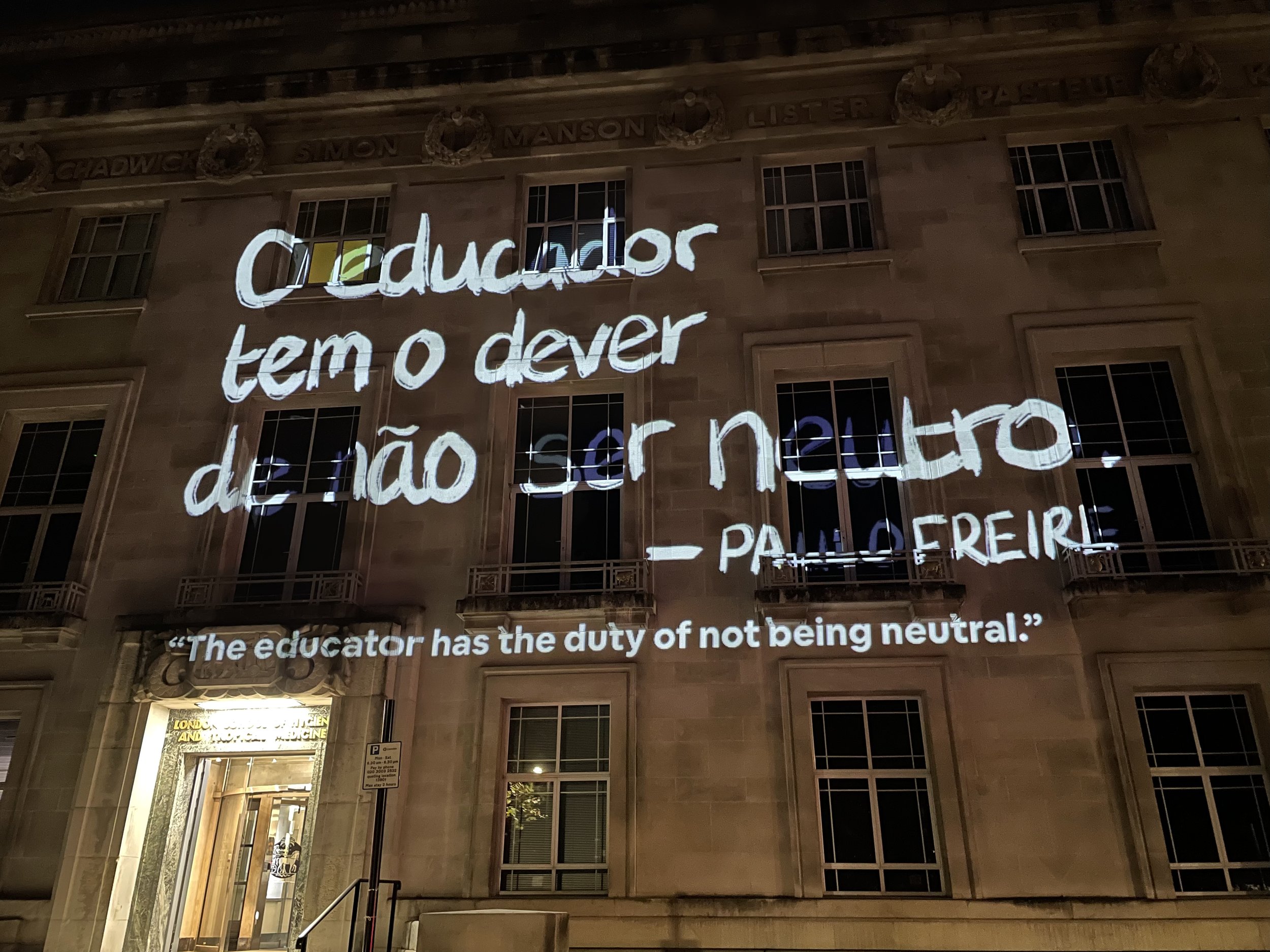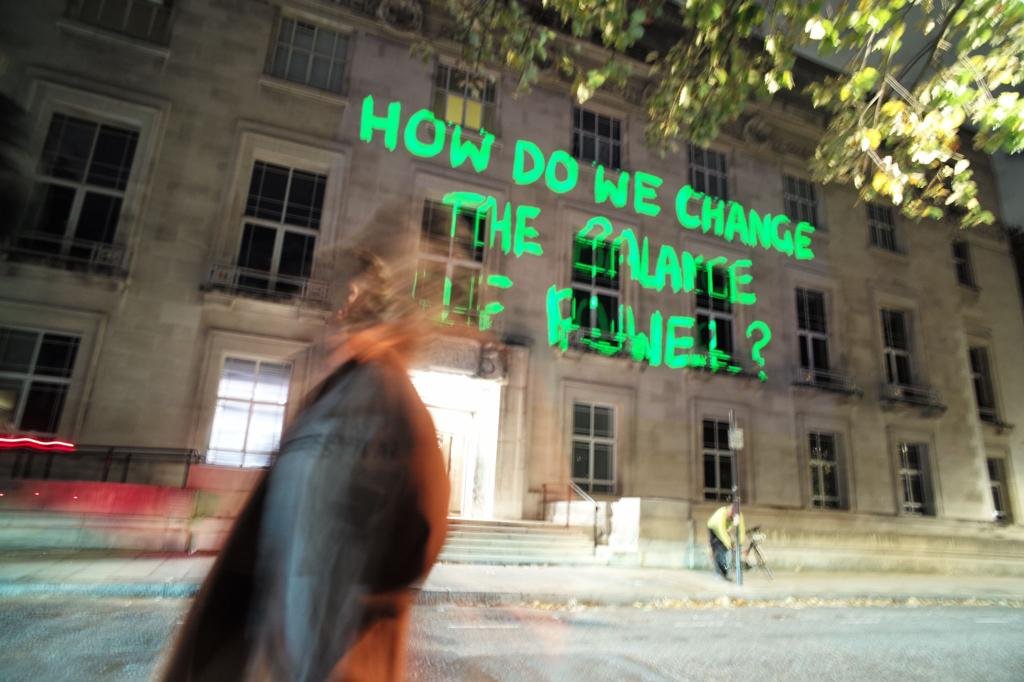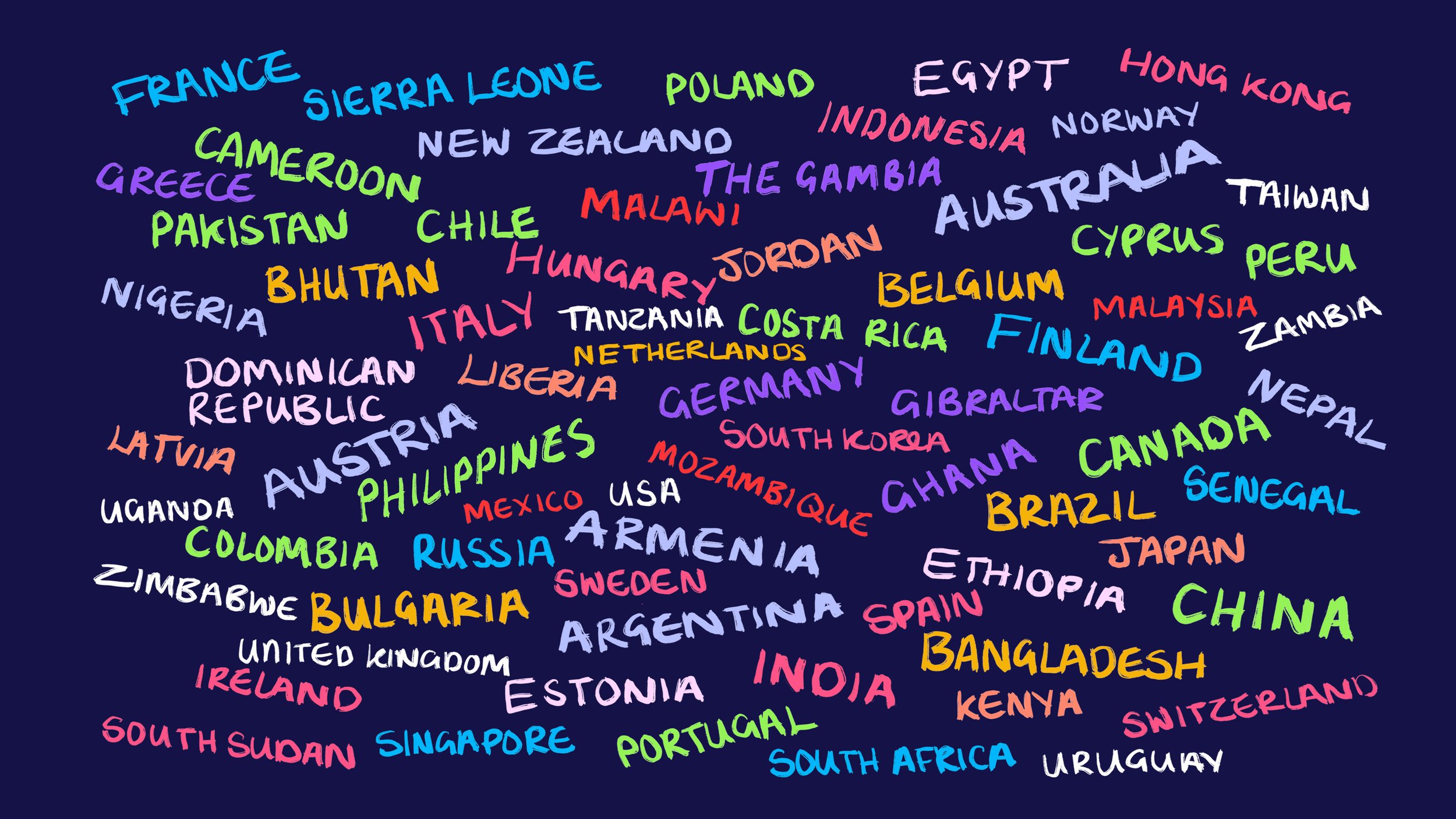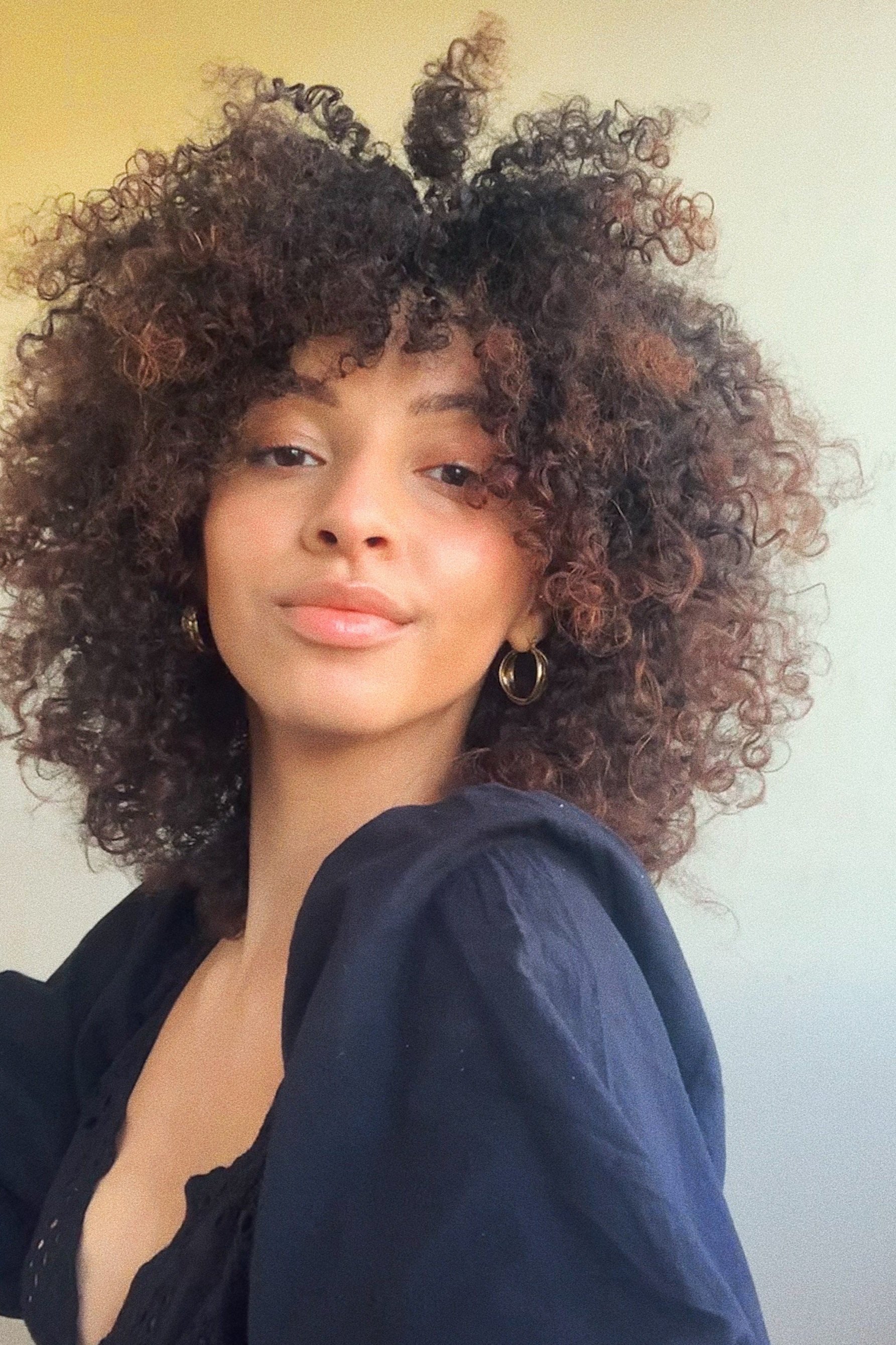Light Up LSHTM: Shining light on the decolonizing global public health movement
Presented by the Health Equity Action Lab at LSHTM in collaboration with StudioLou
Bloomsbury Festival · 22 October 2021 · Keppel Street
O educador tem o dever de não ser neutro.
The educator has the duty of not being neutral.
-Paulo Freire
Decolonizing global public health has been defined as “a movement that fights against ingrained systems of dominance and power in the work to improve the health of populations” (Khan, et al., 2021). The aim of this project is to inspire dialogue within LSHTM on positionality, privileges, and power dynamics in the broader landscape of global public health and to use street art projection to invite the public outside of LSHTM to join the conversation on decolonizing happening inside the School.
While the light projection is a temporary installation, our respect for the outstanding individuals who are featured in this project is enduring. We also acknowledge that the individuals portrayed here only represent a few of the many who have made enormous contributions to the development of public health research worldwide and to LSHTM. This is only the start of the conversation.
The portraits
On 18 August 2021, the Health Equity Action Lab (HEAL) and Studio Lou co-led an interactive workshop with members of the broader LSHTM community to solicit views on decolonizing global public health and to develop visions of a decolonized LSHTM.
During the workshop, we asked participants, ‘Who should be celebrated at LSHTM who has historically been overlooked?’ The top responses included:
Colleagues in the security, cleaning, and catering teams who are essential and have faced disproportionate challenges during COVID-19.
Fieldworkers and research nurses who are often most closely connected to the communities we study.
International alumni who are fighting for health equity across the globe.
Professional support staff who are often left off the publications but who make the research happen.
Students who bring a wealth of expertise, energy, and lived experiences to our classrooms.
Study participants and their families who give their time and insights to this work.
Based on the learnings from the workshop, the HEAL team worked with the LSHTM community to identify inspiring individuals who should be recognized and acknowledged through portraits projected on the façade of the school as part of the Bloomsbury Festival on 22 October 2021.
The questions
Attendees at the 18 August workshop were also asked to critically reflect on ‘words or phrases that represent a decolonized vision of LSHTM in the present and future.’ This fruitful discussion led to more questions than answers. We invite you to reflect on some of the questions brought up:
Who makes research possible? How can we recognize and acknowledge their contributions?
What is lost in translation? What can be gained?
Who should be included in our conversations? How can we foster inclusive decision-making?
How can we work together with communities to conduct research? What do we gain by valuing lived experiences?
How do we make amends for past and present wrongs? How can we be proactive in engendering positive change for the future?
The languages and countries
After the workshop, we asked attendees about the languages used in their research. We learned that, in order to conduct their global health research, our attendees translated to and from 33 languages: Amharic, Arabic, Beija, Bengali, Burmese, Chittagonian, English, French, Fula, Hausa, Igbo, Kakwa, Kamtok, Kikongo, Kono, Krio, Kurdish, Lingala, Mandinka, Malagasy, Mende, Polish, Portuguese, Romanian, Ruáingga, Spanish, Swahili, Swedish, Tagalog, Temne, Turkish, Wolof, and Yoruba. We also learned that our MSc students come to LSHTM from more than 70 different places, some of which are represented below.
Meet the artist
Louise Gunn of Studio Lou
It has been an absolute privilege for the Health Equity Action Lab to partner with Louise Gunn of Studio Lou in the development of ‘Light Up LSHTM.’ Lou is a talented London-based artist with a passion for experimenting and color. She has a BA in Printed Textiles and Apparel Design from the University of Northampton and works as a product developer in the apparel and fashion industry.
“When I was asked to be a part of this project I was excited to help shine light on such an important conversation! With all that has happened over the past two years with COVID-19, it couldn’t be more at the forefront of my mind that there needs to be more people talking about the ‘decolonising public health movement’. I’m honoured to be a part of this project with LSHTM and to help promote such a crucial inclusive conversation through art!” -Louise Gunn
Join the conversation
Email us at heal@lshtm.ac.uk or send us a message below.
Decolonizing at LSHTM
“Decolonization has multiple definitions and that’s okay. The complexity of the concept, process, and movement allows it to accommodate multiple definitions even as its meaning shifts depending on the sociopolitical positionality of the actor, the positionality of their audience, the actor’s geographical and epistemological location, their colonial history, their role inside or outside academia/activism/politics, and their access to power. It is a colonial construct that everything has to be rigidly defined and have only one definition. The fluidity of decoloniality allows for a multi-faceted approach to decolonization so that various aspects of the colonial mountain could be attacked simultaneously and synchronously, increasing the likelihood of it being successfully leveled.” -Ijeoma Nnodim Opara
‘Light Up LSHTM’ is one of many initiatives at LSHTM with a focus on decolonizing global public health. To learn more about the other activities, please see:
Decolonising global health lecture series The LSHTM History Center is running a series of lectures that seek to raise awareness of colonial history and its continuing relevance to global health. Between 7 October and 18 November, there will be six sessions, which combine lectures and interactive group discussions in breakout rooms.
LSHTM and colonial histories This project draws on LSHTM’s own archives to critically interrogate and explore the school’s colonial entanglements between 1899 and 1960. The project aims to understand the consequences of LSHTM’s engagement with the British Empire for research, teaching and the institutional development of the School.
Decolonising Global Health LSHTM DGH-LSHTM is a volunteer community of students, staff and alumni working to address the prevalence and perpetuation of colonial power dynamics in global health. The group believes that global health institutions must fight, not reinforce, racial and national hierarchies and exploitative systems.
Decolonising the Curriculum Linking to LSHTM’s broader equality, diversity, and inclusion strategy, LSHTM is proactively working to decolonise its curriculum. The aim of the initiative is to ensure that LSHTM’s education programmes are actively and deliberately inclusive, and that they reflect the range of cultures and knowledge systems that make up the field of global health, equipping graduates of our programmes with the skills they need to be engaged, critical global health practitioners and researchers.
Fighting Against Institutional Racism (FAIR) @LSHTM Network The FAIR Network is an unofficial group of current and former LSHTM staff and students working to dismantle colonial legacies in global health education. The group has developed anti-racism toolkits focused on decolonizing LSHTM, reclaiming diversity and inclusion, and reimagining LSHTM.
Acknowledgments
The project was conceived and co-designed by LSHTM students (Emma Roy, Niamh Murphy), professional support staff (Tanaka Nyoni), and academic research staff (Nuria Sanchez Clemente, Julia Pescarini, Amber Raja, Enny Cruz, Elizabeth Brickley) in the Health Equity Action Lab and brought to life by the brilliant Louise Gunn of Studio Lou. This project was made possible with generous support from the LSHTM Infectious Disease Epidemiology Department, the LSHTM Public Engagement Small Grants Scheme, and the Bloomsbury Festival. We are grateful to the workshop attendees for their insights and inspiration for the art, to Boghuma Titanji, Martha de Caldas Netto, Tanaka Nyoni, Steven Nicholas, Rene Alejandro Lozano Alvarez, and Rapeephan Maude for their contributions and willingness to participate in this project, to Naomi Asentewa-Sechera and Karl Byrne for coaching for their advice on public engagement, to Naomi Stewart and Katie Steels for their advice on communications, to Clare Matysova and Mariam Irshad for their advice on linking this work to the LSHTM EDI Strategy, to Amy Gimma for her expertise and insights, and to Liam Smeeth and Katherine Fielding for their support in the development of this project. We also thank www.lens-stories.com and Julia Pescarini for the photos from the installation.
Within the HEAL team, we acknowledge that we initially approached this project from a London-based perspective and with an English language bias, and in completing this work, our views on the subject matter have evolved. Based on our learnings, we will strive to foster active inclusion, especially of historically overlooked groups including outsourced and overseas colleagues, from the very earliest stages of project development.



















